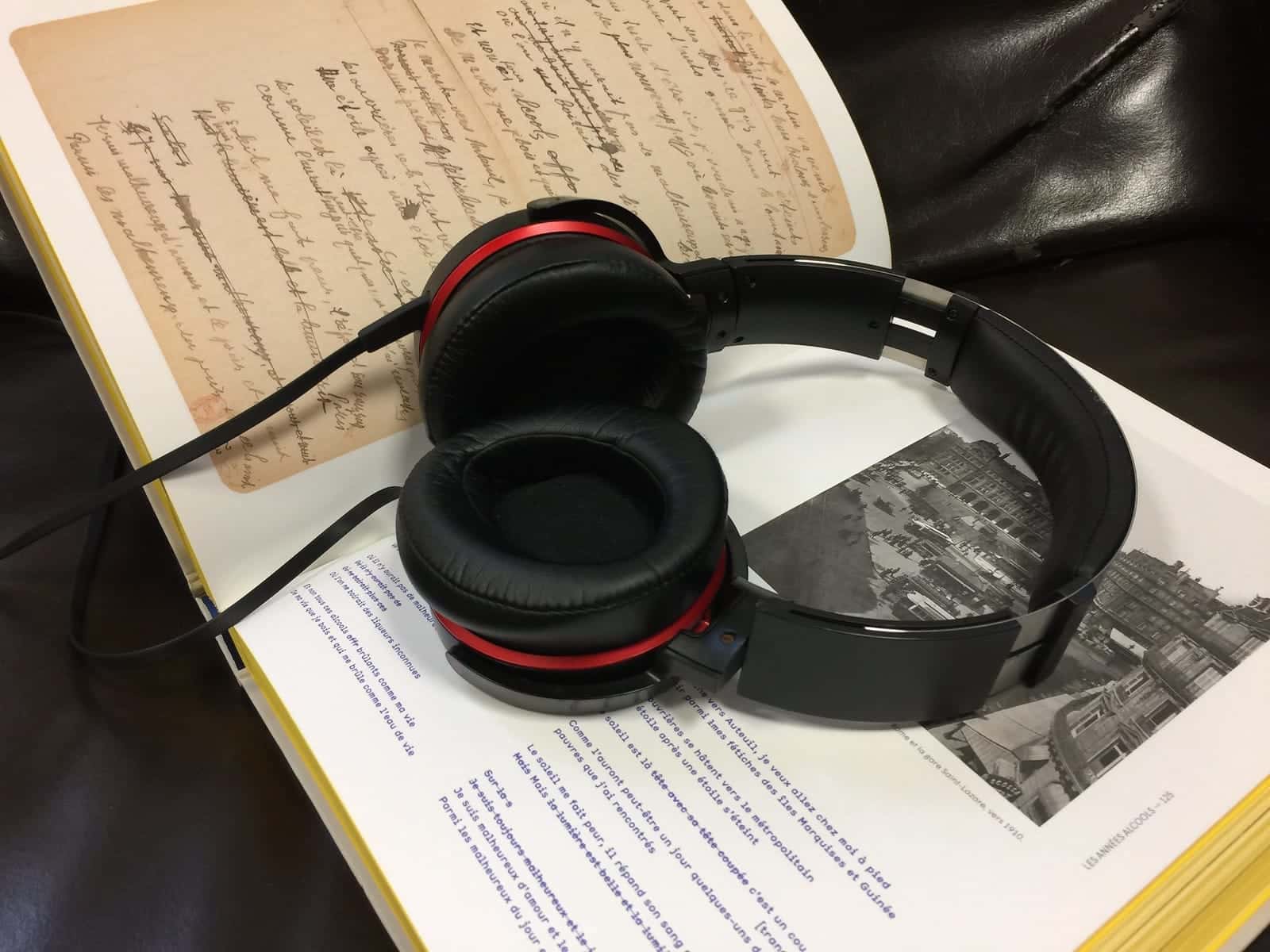Publishers Threw the Public Under the Bus in Their Win Over Audible Captions

We still don’t know the specifics of the settlement agreement that ended the lawsuit that seven publishers filed against Amazon over Audible Captions, but one thing is clear: publishers care more about winning a fight against Amazon than about how the public might benefit.
AAP president and CEO Maria A. Pallante issued a statement yesterday, revealing that there are two parts to the settlement:
AAP, the plaintiffs, and Audible have resolved their pending litigation.
Audible has agreed that it will obtain permission from any AAP members that are in good standing with AAP before moving forward with Audible Captions for their works. We will be advising our members as to the application of the resolution.
Separately, the parties have presented a consent permanent injunction to the court, which would resolve and dismiss the underlying litigation between the publishers and Audible.
The Association of American Publishers has some 150 members, representing about a third of the titles published each year in the US (and a considerably smaller percentage of the titles published globally).
Those publishers have won their battle against Amazon, and their reward is the ability to deny users from accessing a useful tool.
Folks, I have seen, from the very first announcement of Audible Captions, the value that users can get from this feature. Anyone who had difficulty understanding spoken words, whether it’s because English is not their native tongue or because they have hearing loss, could have used the Captions feature to get a clue what the narrator was saying. Furthermore, students who weren’t familiar with a strange word spoken by the narrator could have used Captions to see how it was spelled, and then looked it up.
But now publishers have the power to deny the public from using this feature on their books.
I probably should not have been surprised at this outcome; the same thing happened in 2009, when Amazon debuted a text to speech feature on the second Kindle. In what is now misremembered as a legal precedent (it was actually a contract dispute) publishers pressured Amazon into giving them the option of denying users from accessing that feature, too.
So today’s news should not be a surprise, but it does beg the question: Was winning your fight with Amazon really so important that throwing the public under the bus was an acceptable result?
image by ActuaLitté via Flickr


Comments
Jim February 7, 2020 um 1:37 pm
So, publishers stopped Amazon from doing something they didn’t have a right to do in the first place, and that makes publishers evil?
I’m no fan of the Big 5, but I don’t think Amazon is a victim here.
"…their reward is the ability to deny users from accessing a useful tool." That’s like arguing it’s okay to pirate movies and music if you can’t afford it.
The "public would benefit" from me giving away all my books for free, but that doesn’t mean I’m a jerk to charge people money to buy my books.
Love you, Nate, but you’re wrong on this one.
Nate Hoffelder February 7, 2020 um 2:00 pm
Uh, yes, Amazon did have a right to do it. Go look at the Google Books ruling.
Disgusting Dude February 7, 2020 um 3:52 pm
What tbis means is smart publishers will allow captions and the corporate types won’t.
Come purchase time, audible customers will judge who they give their money too.
Thing is, these f… folks… don’t realize that captions are not only legal, but under ADA and other accessibility laws, required.
Come lawsuit time, Audible can just simply shrug and send the activists to NY. Their hands are clean on this.
Nicolas Gary February 8, 2020 um 5:33 am
Hello Nate
Could you please credit the picture ActuaLitté CC BY SA 2.0 ?
Thanks a lot for your work.
Nate Hoffelder February 8, 2020 um 7:26 am
huh – I usually credit the photo at the end of the post, but forgot this time
sorry about that – it’s fixed
Bill Rosenblatt February 8, 2020 um 8:27 am
No. If the Google Books ruling really did apply, the parties would not have settled in the way they did. Simple as that.
The publishers' lawyers–who are top-class IP litigators–were able to show daylight between this situation and Google Books. They were able to convince Audible that Google Books didn’t apply or at least it wasn’t worth risking a real court precedent (trial or summary judgment) saying that it’s not applicable, which would have more weight in the future than a settlement.
Disgusting Dude February 8, 2020 um 10:31 am
Or, maybe Audible decided it wasn’t worth it to spend money trying to protect the corporate types from tbeir own folly.
Just because the corporate types and their mouthpices choose to ignore accessibility laws and their *requirements* doesn’t meant the laws go away. Until now they were covered by the "undue burden" clause but now that Audible has demonstrated that close captioning is feasible at no significant added cost, that coverage goes away. The way the laws are written they don’t apply just to the totally blind or totally deaf but to people with degraded vision, dyslexics, and the hard of hearing, everybody on the limited accessibility spectrum. Asking the accessibility-limited to buy a "separate but equal" product is exp!icitly denied by the laws precisely because it is a full spectrum.
That is why DVDs come with descriptive captions as well as "captions for the hard of hearing"; each product is supposed to be *by itself* accessible to the broadest population technically possible. Not simply the segment the distributors choose to serve. That is why Kindle DX died by lawsuit. And it is why PCs and tablets and Kindles come with narrative user interfaces.
As of now, Audible has all the legal cover they need, come lawsuit time.
The publishers will have to fend for themselves.
Allen F February 8, 2020 um 11:23 am
Laughing my arse off as the kids say.
This, if you think about it for a mere second, is the agency pricing battle all over again.
Amazon has 'given up' and allowed the idiots to do something that will hurt only said idiots if they do it, while at the same time allowing non-idiots to do something readers will find useful.
And like when agency pricing killed the qig5 ebook sales, in six months we’ll be hearing them whine that Amazon was the bully that forced them to take this action …
Allen F February 8, 2020 um 11:31 am
You’re missing the joke in all this.
The publishers couldn’t win on merits – or they would have gotten a better ruling.
What Amazon did give them was something that only screws them while allowing everybody else to benefit from it.
This is agency pricing all over again. 😉
Disgusting Dude February 8, 2020 um 1:27 pm
I have a couple dyslexic friends who are heavy users of text-to-speech as an aid while reading.
Guess whose ebooks they buy mostly?
Right.
It isn’t even an Amazon thing because FBReader, among other apps, has better TTS controls than Kindle.
But buying DRM-free indie books helps them get what they need without messing with deDRM-ing tools.
The less obstacles readers face, the more they enjoy and the more they’ll buy.
Amazon is Extending the Audible Caption Settlement to All Publishers and Authors – Will You Disable This Feature? | The Digital Reader February 9, 2020 um 11:51 am
[…] detail was made clear in the AAP statement I quoted, and in the proposed settlement agreement […]
Marilynn Byerly February 10, 2020 um 11:55 am
No, Nate, Amazon didn’t have the right. That’s why they caved in with this and the text-to-speech feature which is essentially the same rights grab. If they believed they were truly in the right, they’d have thrown lawyers in an expensive legal battle to the death. Instead, they settled.
Authors create the copyrighted material, they license their rights to a publisher or a distributor with a contract, and that contract specifies those rights. Neither TTS or the caption right was listed in those contracts to Amazon until Amazon took them without permission.
Geez, you really need to get over the idea that copyright theft is a wonderful thing for the public and a giant conglomerate like Amazon. If the public and Amazon want that right, they should pay for it. Creators don’t create if they aren’t paid.
Tom S February 13, 2020 um 3:42 pm
I’m still waiting for the feature to appear in the Audible app. Now that things are ‘settled’, can’t they deploy it?